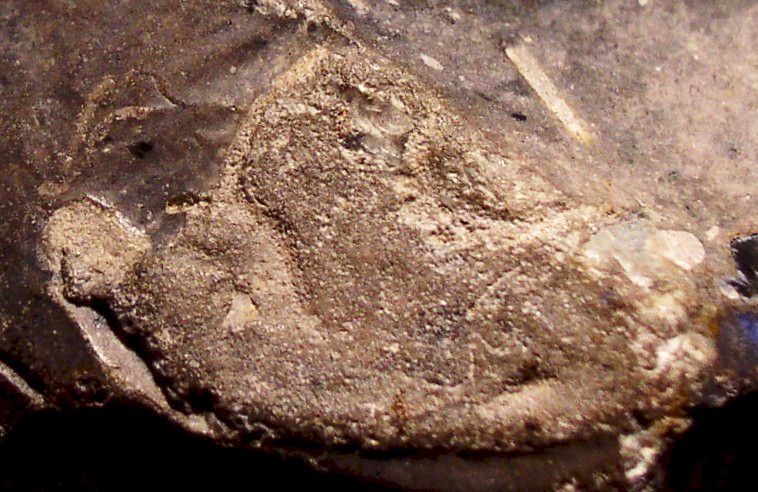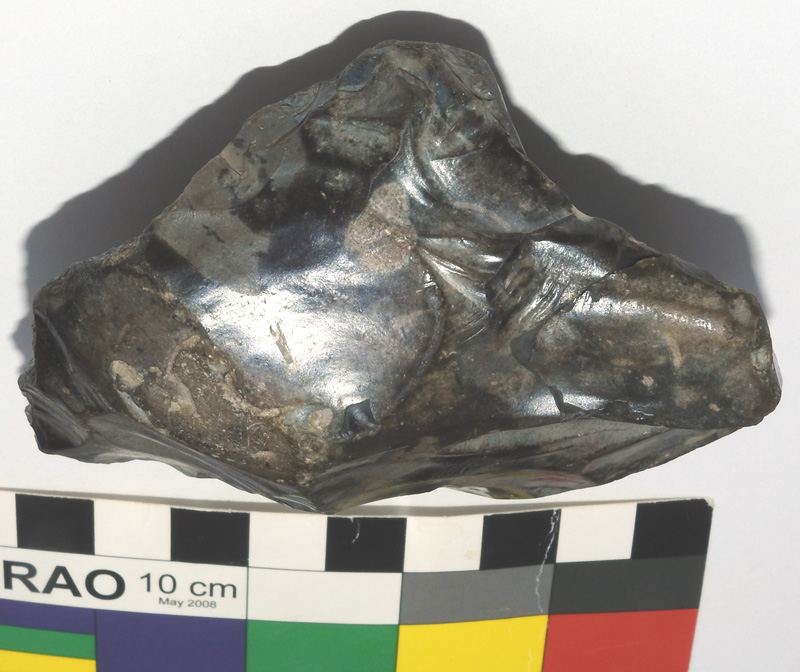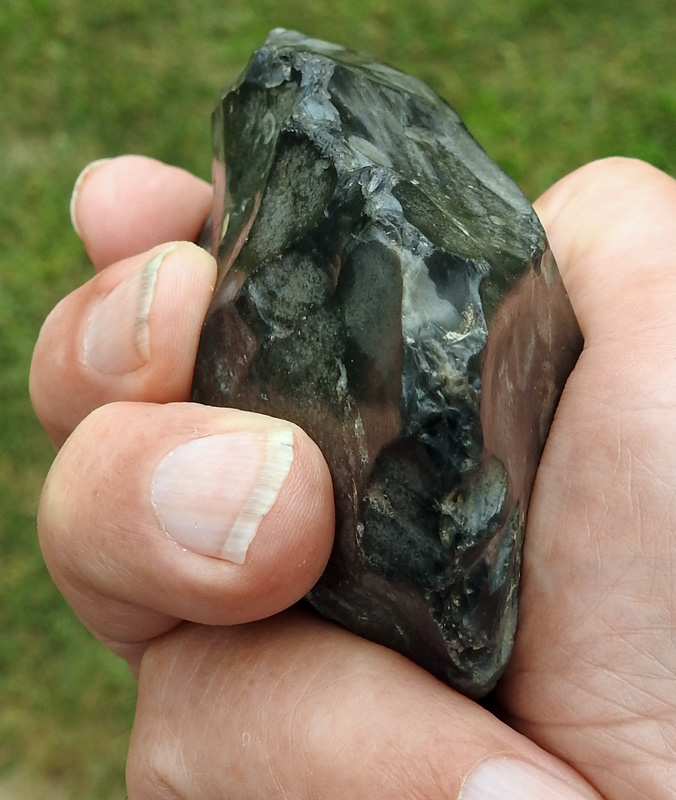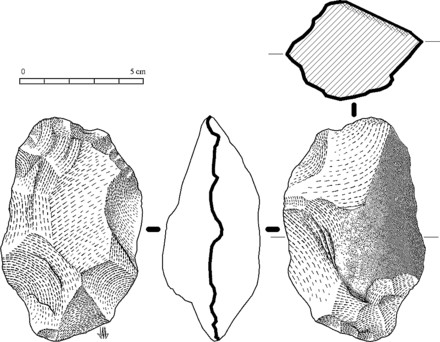|
France
Wimereux
(North Coast)
Collection
of Charles Belart
| The
artifacts shown below are flaked tools and cores of Abbevillian/Acheulean
(AKA Clactonian) technology, apparently Lower Palaeolithic from
roughly 500,000 years
BP, and thought to be the handiwork of Homo
heidelbergensis. |
|
|
An
"Abbevillian" hand axe or "chopper" with a finely
detailed quasi-anthropomorphic face image at the top of its
grasping surface. This heavily patinated piece was
discovered in 2005, having been washed up from the English
Channel onto the shore at Wimereux.
Below,
another tool from the same locus and in the same general form:
|
|
Below, close-up
photos of the black flint piece above, showing unmistakable and
precise working of the eyes on the face. Each eye is
roughly 5 mm across. Note that the iris of the right eye
(viewer's left) is convex, and the left eye's iris is concave.
One might speculate on a symbolic/cognitive relation- ship
between the clearly intentional dissimilarity of the two eyes
here and that in the well known and quite ancient one-eye-open
/ one-eye-closed motif. (Who knows?) |
| The style of this implement is characteristic of
ca. 500,000 years ago, and its patination seems visually consistent with such an age.
Of course finely detailed imagery on a tool so old is assumed to be impossible.
Although these images do not appear to be recent, one must consider the possibility that they were cut into the rock long after its manufacture as a tool, maybe, for
example in the Late Palaeolithic.
It is hoped that infrared spectroscopy or similar technology can be employed in
determining the relative ages of the object's surface modifications.
|
|
Below,
an image in cortex material on the other side of the tool:
|
|

|
|
Image
27 mm across. |
|

|
|
Other
side of tool. |
 |
|
Working
edge. |
|

|
|
From
Wikipedia,
a sketch of a tool like the one above. |
|
|
A
chopping tool in zoomorphic form. |
|
A
core in the form of a human-like head. |
| Another view of
the core in the preceding photo. |
|
A
fluted hand axe or cutting tool.
|
|

|
|
A
common form (representing what?)
|
|
Top
of Page
| Click your browser's
"Back" button to return to the point from
which you entered this page. |
HOME

|
|